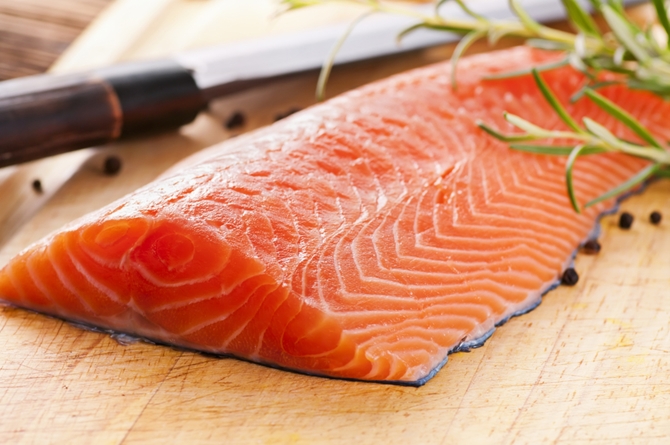Nourishment is vital for health. A harmful food can harm your metabolic rate, reason weight increase and even disturb organs such as your heart and liver. What you eat also affects the health of another organ — your skin.
As more is learned about how diet affects the body, it’s becoming progressively strong that what you eat can considerably affect the health and aging of your crust. This article takes a look at some of the finest foods for keeping your skin healthy.
-
Fatty Fish

Fatty fish, such as salmon, mackerel, and herring, are outstanding foods for healthy skin. They are rich foundations of vital omega-3 fatty acids, which are significant for preserving skin health.
Important fatty acids are essential to keep skin dense, flexible and creamed. In fact, a lack of omega-3 fats can cause dry skin. The omega-3 fats found in fish decrease infection and can be the reason for inflammation and acne. And even make your skin less sensitive to the sun’s harmful UV rays.
Some studies have found that fish oil supplements may help fight inflammatory and autoimmune conditions affecting the skin, such as psoriasis and lupus. Fatty fish are also a basis of vitamin E, which is one of the most significant antioxidants for the skin. Getting sufficient vitamin E is important for shielding the skin against harm from free radicals and inflammation.
-
Avocados

Avocados are extraordinary in healthy fats. These fats advantage many purposes in your body, including the health of your skin. Getting sufficient of these fats is significant for keeping skin supple and creamed. One study of over 700 women found that a high intake of total fat, precisely the types of healthy fats found in avocados, was associated with having suppler, soft skin.
Initial proof also shows that avocados contain mixes that may guard the skin in contradiction of sun harm. UV injury to the skin can reason signs of aging, such as wrinkling. Avocados are also a decent foundation of vitamin E, which is a vital antioxidant that helps protect the skin from oxidative harm. Vitamin E is also a nutrient most Americans don’t get sufficient of it. A 100-gram serving (about 1/2 an avocado) provides 10% of the RDI for vitamin E and 17% of the RDI for vitamin C.
-
Walnuts

Walnuts have numerous features that make them an outstanding food for fit skin. They are a good basis of essential fatty acids, which are fats that your body cannot make itself. In fact, they are richer than most other nuts in both omega-3 and omega-6 fatty acids.
A food too high in omega-6 fats endorses irritation, with inflammatory conditions of the skin like psoriasis. Omega-3 fats, on the other hand, help decrease inflammation in the body, including in the skin.
While omega-6 fatty acids are abundant in the Western diet, sources of omega-3 fatty acids are infrequent. Walnuts comprise a good ratio of these fatty acids, and may, therefore, fight the inflammatory reply to too much omega-6.What’s more, walnuts contain other nutrients that your skin needs to function properly and stay healthy. One ounce (28 grams) contains 6% of the RDI for zinc, which is vital for the skin to purpose properly as a barrier, as well as essential for wound healing and fighting both bacteria and inflammation.
In general, nuts and seeds are good sources of nutrients that are important for healthy skin.
-
Sunflower Seeds

Sunflower seeds are an outstanding example. One ounce (28 grams) of sunflower seeds contains 32% of the RDI for the antioxidant selenium, 10% of the RDI for zinc and 5.4 grams of protein. This quantity also contains 37% of the RDI for vitamin E, which is a nice way to make sure you’re getting sufficient of this significant vitamin and antioxidant
Additionally, sunflower seeds are an outstanding source of linoleic acid, the essential omega-6 fat found in nuts, seeds and vegetable oils that your skin needs to stay dense, supple and creamed.
About Writer:
Alison Cerys is a Dermatologist, Academician and a Blogger. As an academician and a writer, she also gives expert dissertation writing service reviews. She is an expert for getting advice and tips on skin care, skin disorders, and skin allergies.